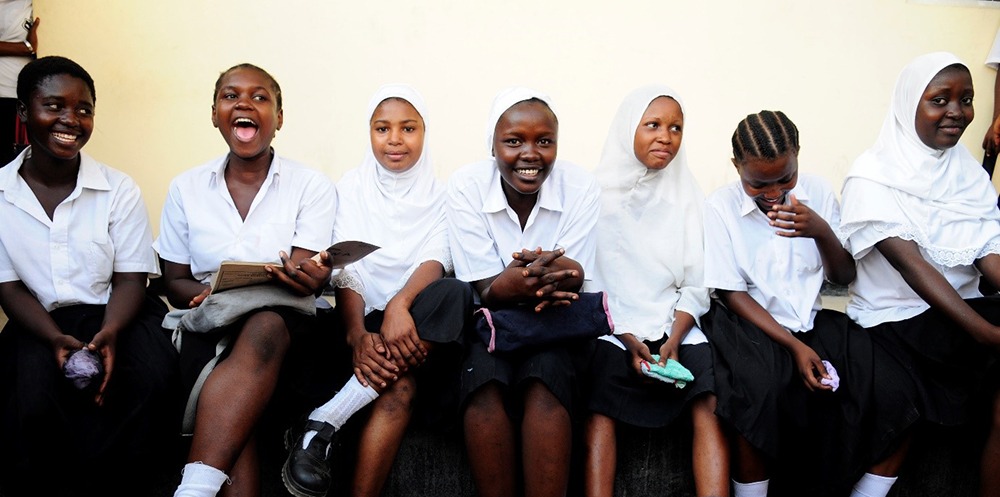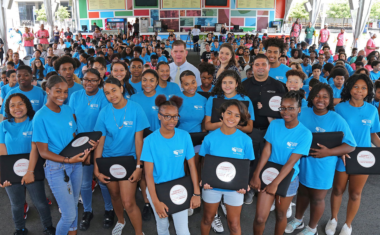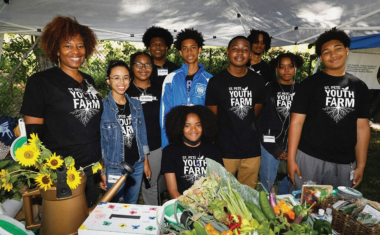GirlsEmpoweringGirls Programme
- 7 min to read

Kampala, Uganda
About the city. Young people have expressed concerns about a lack of education and employment opportunities and are losing hope of ever being able to achieve economic success.
Goal
The project has three main goals:
- to ensure that girls transition safely into adulthood.
- ensure that girls receive education and training.
- ensure that girls empowered to achieve their goals and make a contribution in their community and country.
Implementation period. November 2019. The programme is being implemented across all five of Kampala divisions (Central, Kawempe, Lubaga, Makindye, and Nakawa), reaching diverse geographical pockets of vulnerable girls.
Fact
80% of girls in Kampala do not feel safe in public places.
Solutions
Background
By 2040, over 20 million Ugandans will reside in urban areas, with the highest proportion being children and young people. While children in urban areas are considered better off than their rural counterparts – with greater access to services and more diverse income-generating opportunities – they are also vulnerable to homelessness, exploitation and abuse.
In Kampala, 54 percent of the residents live in slums with inadequate housing, poor sanitation and limited access to essential services, including education and employment. Adolescents and young people in urban areas face threats, especially girls and young women who are at risk of sexual violence and HIV/AIDS. Young people have expressed concerns about a lack of education and employment opportunities and are losing hope of ever being able to achieve economic success.
What is the GirlsEmpoweringGirls programme?
The GirlsEmpoweringGirls programme works to ensure that girls transition safely into adulthood, receive education and training, and are empowered to achieve their goals. It does so by supporting in-school and out-of-school adolescent girls living in Kampala, providing avenues to empower girls through a network of peer mentors, engaging them through education, training, and referrals to support services, and enabling them to pursue better opportunities for their future through a small cash transfer. This is the first social protection programme in Uganda, directly targeting children.
The programme design is informed by international evidence of the positive impact of combining services-oriented programming with a cash transfer, which have demonstrated promising results across education, health, gender, protection, livelihoods and similar dimensions.
Education, in particular, unlocks opportunities, as every additional year of primary schooling, provides an average 10-20 per cent increase in wages. It also encourages girls to marry later and have fewer children, and leaves them less vulnerable to violence.
The programme targets. Two different categories of vulnerable adolescent girls:
- girls in upper primary, attending Universal Primary Education schools with high drop-out rates, who are at risk of not transitioning to Secondary school;
- adolescent girls who have dropped out of school, who are vulnerable and living in the corresponding school catchment areas.
Challenges
Problem. How to select participants?
Solution. The programme identifies participants by targeting the communities they live in and the schools they attend (a geographical-categorical targeting mechanism), through an analysis of the levels of multidimensional child and household poverty, school drop-out rates, and household-level vulnerabilities.
Team
The programme was developed by KCCA and UNICEF with support from the Economic Policy Research Institute. The GirlsEmpoweringGirls programme is aligned with the Government of Uganda’s Vision 2040, National Development Plan, and National Social Protection Policy, and is supported by the Ministry of Gender, Labour and Social Development.
At the parish level, the project is implemented by a network of lead-mentors and peer-mentors, who are directly overseen by two CSO partners: Trailblazers Mentoring Foundation and the Uganda Youth Development Link.
Timeline
The first cohort of the GirlsEmpoweringGirls programme includes 1,500 girls across all five divisions of Kampala, half of which are in-school and the other half are out-of-school. They receive mentoring through a network of 300 peer mentors, overseen by 30 lead mentors. This cohort is expected to receive continuous support as they transition towards adulthood through December 2023.
If you notice an error or inaccuracy in our editorials, please email [email protected] so we can look into it.






